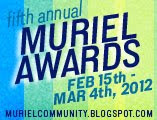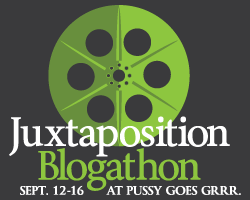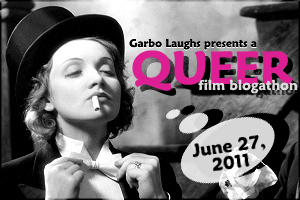I've put two new reviews on my main web site. They are:
Iron Man (expanding--to put it mildly--on the comments I made here a couple of weeks ago)
and
188. The Call of Cthulhu (2005, directed by Andrew Leman), which in abstract wonders about H. P. Lovecraft's relationship with calamari and lauds the D. I. Y. aesthetic that informs this particular vanity project.
During the course of last week, I also watched:
189. The Magic Blade (1976, directed by Chor Yuen), in which Ti Lung plays a wu xia swordmaster who falls in with his rival, played by the ubiquitous Lo Lieh. Both are pursued by the agents of Mr. Yu, who seeks to assert his complete dominance over the world of martial arts by laying his hands on the fabled Peacock Dart and by eliminating his main rival. Much intrigue and swordplay ensues. This is nowhere near as accomplished a film as some of Chor Yuen's other movies, and show signs of editorial tampering by the higher-ups at Shaw, but it's still entertaining as all get-out. In addition to the feature itself, the newish Image disc is festooned with 30-plus trailers for other Shaw films and other HK actioners in general. Many of these look terrible, but they still kinda sorta stoked a dormant appetite for stupid HK action films that I didn't know I still had. We'll see what comes of it.
190. Indiana Jones and the Kingdom of the Crystal Skull (2008, directed by Steven Spielberg) doesn't change the essential calculus of the Indiana Jones movies, which is to say that the series still consists of Raiders foremost, and then the other movies in various orders of preference. Personally, I liked this new film. It may actually be the best of the not-Raiders films, but I haven't seen the other two in years, so I may be talking out of my ass. Regardless of what flaws there are--and there are many--the movie is an agreeable entertainment by a director who used to be the best entertainer in the world. There are still sparks. There's an image of Indiana Jones staring up at a mushroom cloud in this film that may be the best shot in the entire series. My main complaint with this film is with Harrison Ford, actually. Not because he's too old for the movie--he's not--but rather that he doesn't seem like the same actor. The Ford of Star Wars and the first Jones movies had an edge of anger that is absent in this movie. I suppose it's reasonable that Ford has mellowed with age, so why not grant Dr. Jones the same license? Sure, but it's still jarring. My favorite part of the movie is how it suggests the adventures we didn't get to see in the intervening years since the last film. "Colonel Jones?" "Consultant at Roswell?" "Mission to Berlin?" Suggestive and tantalizing. I like that.
191. I don't have anything to add to the dialogue about The Godfather (1972, directed by Francis Ford Coppola), except to note in passing that this is the first time I've really zeroed in on the influence of Luchino Visconti on this movie.
192. It's a strange quirk of fate that placed the classic film libraries of Warner Brothers and MGM in the hands of the same corporation, because they couldn't be more politically and sociologically different. Jack Warner was a New Deal liberal, and his films reflected that. Louis B. Mayer was a conservative plutocrat, and his films reflected that. It's oil and vinegar. I don't have a point here, but it's a thought that occurred to me while watching George Cuckor's The Philadelphia Story (1940), which is firmly set amongst the rich and idle. It also occurred to me that all of my favorite Cary Grant comedies--His Girl Friday, The Awful Truth, My Favorite Wife, this--are marriage comedies. Again, I don't have a point, except perhaps that it's a Shakespearean tradition carried forward (all of the comedies end in marriage). This is fun and witty, and the stars (not limited to the film's troika of Grant, James Stewart, and Kate Hepburn) are all charmers.
Monday, May 26, 2008
Calamari
Subscribe to:
Post Comments (Atom)















No comments:
Post a Comment